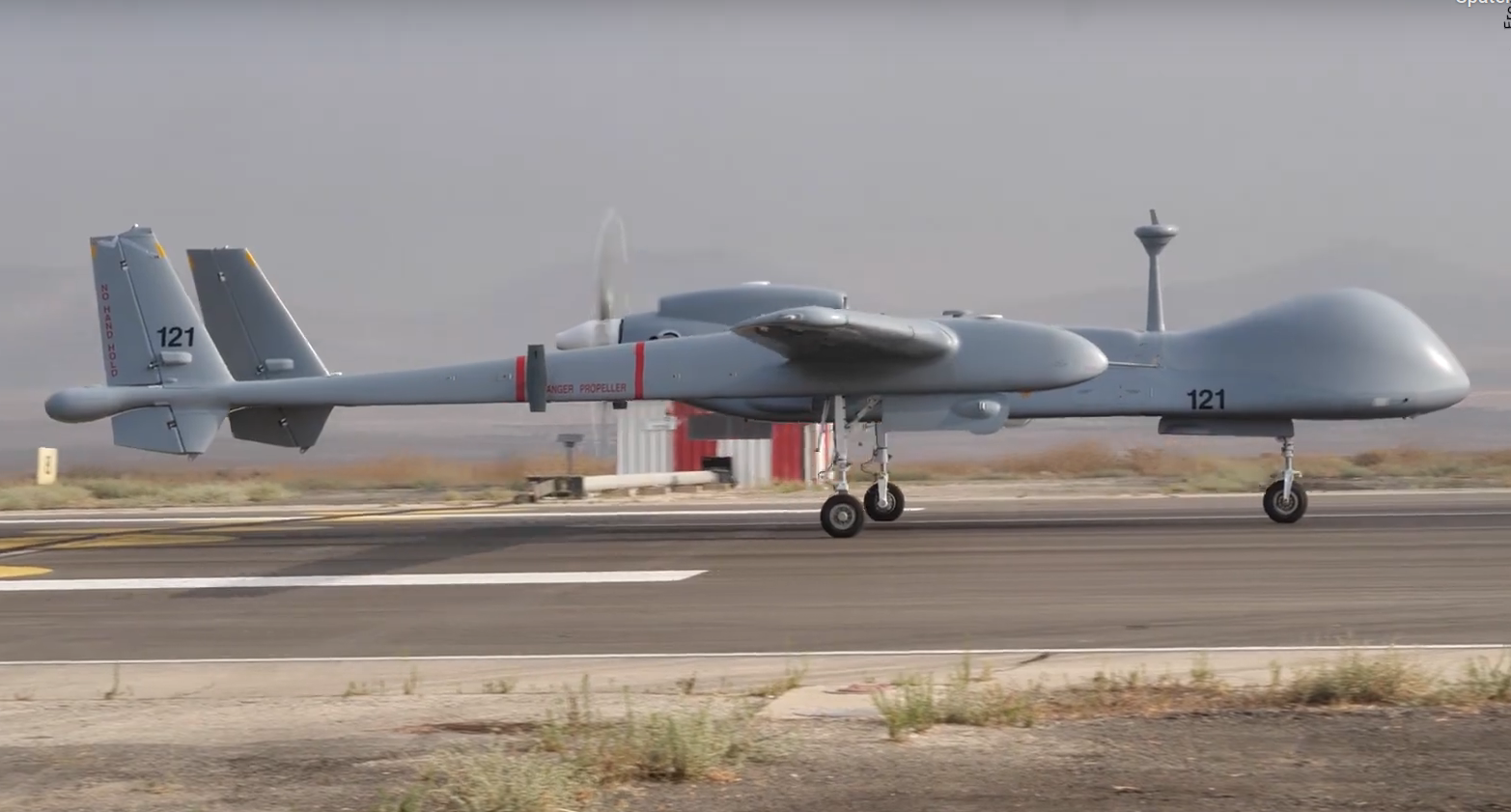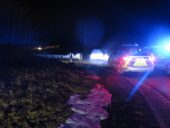The governing coalition of Christian and Social Democrats wants to introduce armed drones in a hurry before the Bundestag elections. More and more SPD members of parliament are now positioning themselves against it
On 16 December, the Budget and Defence Committees of the German Bundestag are due to decide on the armament of the Israeli-derived HERON TP drones for the Bundeswehr. The Ministry of Defence sent a draft decision to the Ministry of Finance a fortnight ago, which will now be submitted to the Bundestag for voting. It is not clear how expensive the armament will be, the mounting points for the desired missiles alone have cost 50 million euros. All details of the ammunition are classified as secret.
In preparation for the vote, the Federal Government has updated an intergovernmental agreement with Israel. It regulates the training of German personnel by the Israeli Air Force and so far only applied to the unarmed HERON TP, which was ordered by the Bundeswehr two years ago. The agreement is now supplemented by the procurement and provision of ammunition, “appropriate additional technical equipment” and “weapon-specific training”.
Operational as of 19 March
In response to a parliamentary question, State Secretary Thomas Silberhorn has now outlined the roadmap for armament. According to this, four of the five HERON TPs will be “made available for use” in their unarmed version in Tel Nof from 19 March. Two years ago, the Bundeswehr moved into a base at the military airport there, and the two governments reached a so-called programme agreement for the stationing. According to Silberhorn, full operational readiness as reconnaissance drones is initially planned for two HERON TPs.
According to the original plans, however, the first drones are scheduled to arrive this year. Until March, they will then undergo various tests, in which the armaments company Airbus, as prime contractor for the Bundeswehr order, will probably also carry out flights with the drones. During these checks, the compliance with German requirements will be verified. For ammunition-related issues, the Bundeswehr has set up a “Weapon System Support Team Unmanned Aerial Systems” which inspects the aircraft for its armed use.
As of today, 60 aircraft crews are being trained for the HERON TP in Tel Nof. They consist of pilots and payload operators responsible for the surveillance sensors. Pursuant to the decision of the German Bundestag, the crew is supplemented by weapon operators. The German Air Force is responsible for designing their “weapon-specific basic training”, to elaborate a concept is scheduled to take six months.
“Doomed to watch”
How defensive or offensive the training for the use of weapons is designed should depend on the respective mandate. The Bundeswehr claims to want to use combat drones in Afghanistan and Mali to guard military bases and accompany convoys. The report on the “Drone Debate”, which the Ministry of Defence prepared for the Bundestag after a series of events, also describes the anger of the German Air Force, which is allegedly “doomed to watch” due to the lack of armed drones. For this reason, they should fly day and night over the area of operations and be able to strike at any time if necessary.
According to the answer now available, the German armed drones could also be deployed in neighbouring countries of the mandate area, subject to the approval of the government there. In Mali, the Bundeswehr has already carried out at least one mission in neighbouring Niger with its HERON 1 unmanned aircraft, which was used to “monitor known smuggler routes”. It is impossible to find out the number of these flights as they are not recorded for statistics by the air force.
Unknown rules of engagement
According to State Secretary Silberhorn, the deployment of combat drones in foreign territory could also be considered in a “self-defence situation”. They can also be deployed in command structures which, as in Afghanistan, are led by international troops. For this purpose, the Bundeswehr is to issue “supplementary specific regulations” to ensure that the German requirements for armed drone flights are met. This could be done, for example, by stationing German liaison officers within these structures.
In the 150,000 Euro “Drone Debate”, the Ministry of Defence emphasised that “extrajudicial killings and actions contrary to international law in general contradict everything the Bundeswehr stands for”. Further details are to be defined by Rules of Engagement for the German armed HERON TP, thus implementing the political and legal requirements. However, these rules will only be drawn up after the Bundestag decision on 16 December and are therefore not yet known to the members of parliament.
Resistance from the SPD base
Allegedly, the Minister of Defence Annegret Kramp-Karrenbauer was asked by the Defence Committee in autumn to prepare a draft resolution on drone armament. This is contradicted by the Social Democratic Party (SPD) rapporteur on air force and arms control, Karl-Heinz Brunner, who accuses her of an “election campaign mode”. Brunner is correct regarding the alleged request for the proposal, as the green light only came from parliamentary group leader Rolf Mützenich, who had announced this only in an SPD circle. The fact that the coalition is hurrying so fast with the decision for the combat drones is probably the opposite of “election campaign mode”, because the topic is to be kept out of the approaching federal elections.
Resistance is now coming from the left wing of the SPD, DL 21, which has launched a resolution against drone armament. Under the motto “Social Democrats against armed drones”, more than 20 SPD members and MPs have written an open letter to the parliamentary group on a specially created website. A No to armed drones is a “Yes to international cooperation for the solution of future questions”. This would accordingly also encourage other states to take such a decision.
Image: The first German HERON TP on its first flight in summer 2020 (IAI, Screenshot YouTube).





Leave a Reply